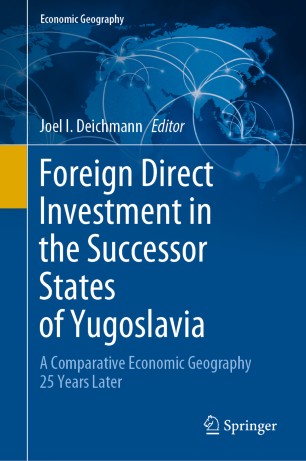

Most ebook files are in PDF format, so you can easily read them using various software such as Foxit Reader or directly on the Google Chrome browser.
Some ebook files are released by publishers in other formats such as .awz, .mobi, .epub, .fb2, etc. You may need to install specific software to read these formats on mobile/PC, such as Calibre.
Please read the tutorial at this link: https://ebookbell.com/faq
We offer FREE conversion to the popular formats you request; however, this may take some time. Therefore, right after payment, please email us, and we will try to provide the service as quickly as possible.
For some exceptional file formats or broken links (if any), please refrain from opening any disputes. Instead, email us first, and we will try to assist within a maximum of 6 hours.
EbookBell Team

4.3
58 reviewsThis edited volume offers a descriptive analysis of foreign direct investment (FDI) flows and cumulative stock, industrial composition, and important spatial trends for each successor state of former Yugoslavia: Bosnia & Herzegovina, Croatia, Kosovo, Montenegro, North Macedonia, Serbia, and Slovenia. The chapters are written by academic experts on the topic from each of these countries and are organised systematically in order to facilitate comparison between the states. The aim of this book is to advance scholarly knowledge about FDI in Southeastern Europe 25 years after the dissolution of Yugoslavia.
Each chapter includes a summary of scholarly contributions published on the topic in English-language and local language journals, a discussion of origins, composition by industry, and location choice within the country from 1995-2018, using Dunning's (1980) eclectic paradigm as a discussion framework. The chapters conclude with prospects for FDI over the next twenty-five years with emphasis on economic growth projections, EU integration, and other relevant country-specific considerations the local authors deem relevant. Special attention is given to specific companies operating in Yugoslavia prior to its breakup and how these firms have been impacted by dissolution, recession, efforts toward European Union membership. The authors also examine the past and potential impact of FDI from unforeseen events such as the Global Financial Crisis and COVID-19.This book appeals to scholars of geography, international business, economics, and economic history of the former Yugoslavia as well as professionals working in the region and on related topics elsewhere.